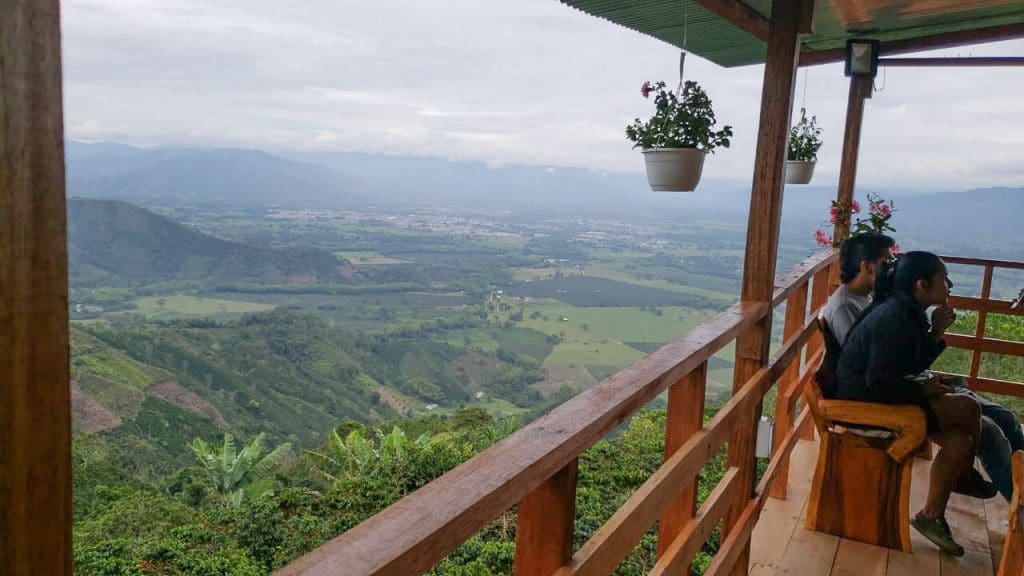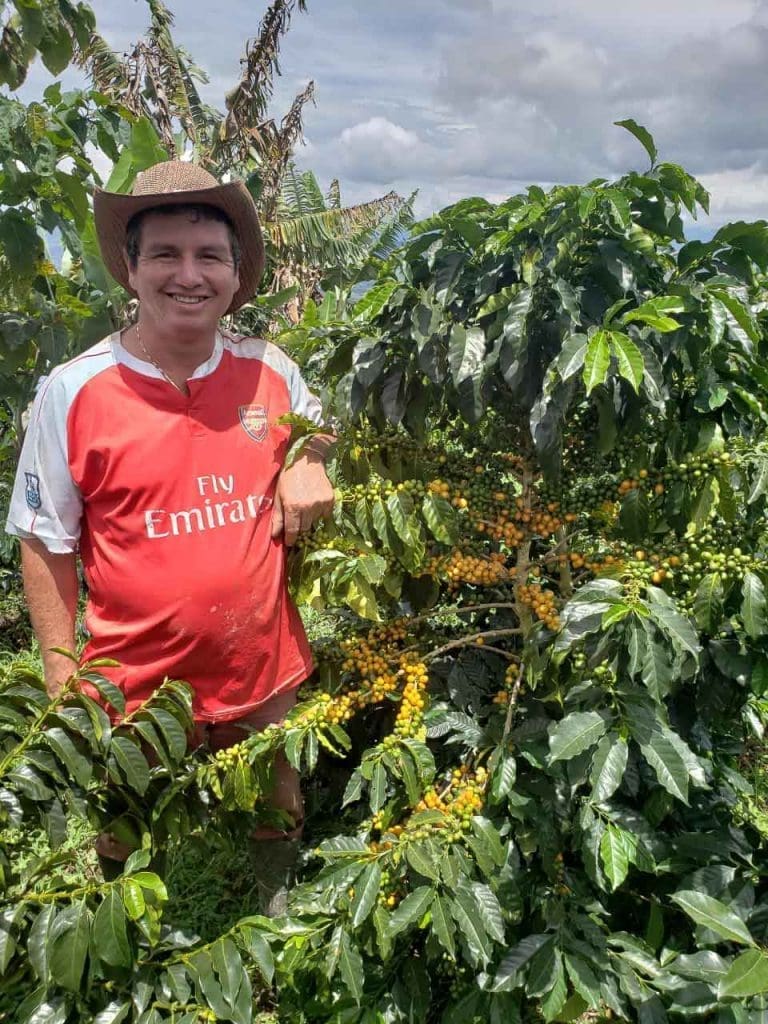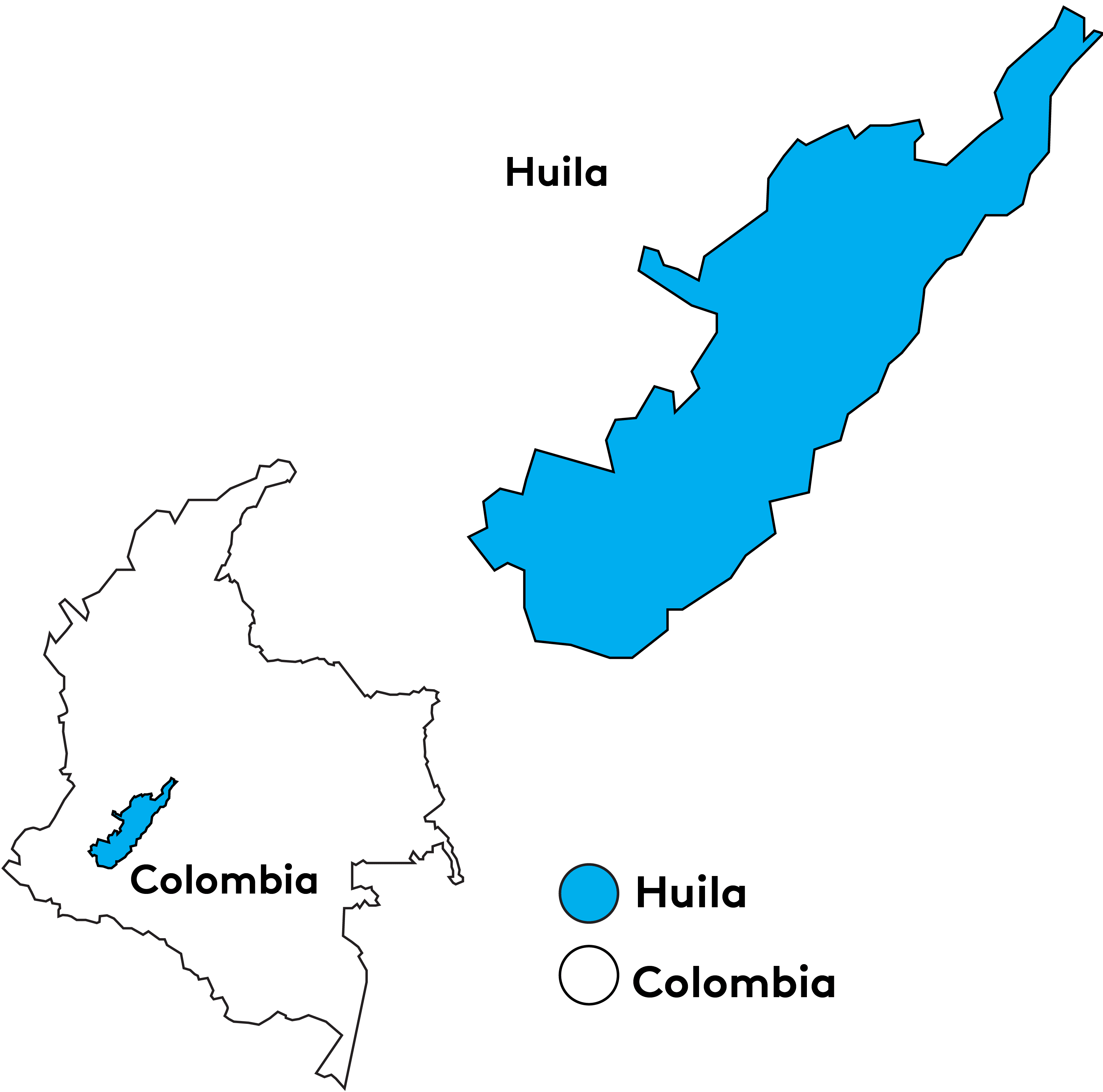Finca La Loma is located in Vereda Agua Negra in the Pitalito municipality of Huila. The farm has 12 hectares planted with many varieties, including Caturra, Variedad Colombia, Pink Bourbon, Pacamara, Laurina, and Geisha. The mill on the farm includes a depulper and tanks for dry fermentation. Producers Rodrigo Sanchez Valencia and Claudia Samboni have been cultivating coffee on La Loma since 2011.
In 2017, Rodrigo and his team at Aromas del Sur—the company built to unify all the farms he owns and manages: La Loma, El Progreso, and Monteblanco—constructed a cupping lab on La Loma to facilitate sample roasting, crop evaluation, and sourcing at origin. The lab overlooks the farm and the valley of Pitalito, with coffee trees and other crops dotting the rolling landscape.
The Colombia variety was developed by the Cenicafe research institute in association with the Colombian Coffee Growers Federation (FNC) to perform well in Colombia’s microclimate. It is a common variety on farms across Colombia.
All cherries harvested on La Loma are measured for degrees Brix. Based on sugar content indicated, the team then designates which processing method is appropriate. Coffees with 24-27 degrees Brix are processed as washed coffees, beginning with depulping cherries they day they are harvested. Coffee is fermented between 28 and 32 hours, fully washed with clean water, transferred to the solar dryer for several days, and finally moved to shaded raised beds to complete the drying process. Floaters are removed at the first stage prior to depulping to produce clean, consistent coffees that represent the terroir of the farm.
Read more about coffee at Monteblanco and new processing innovations.




